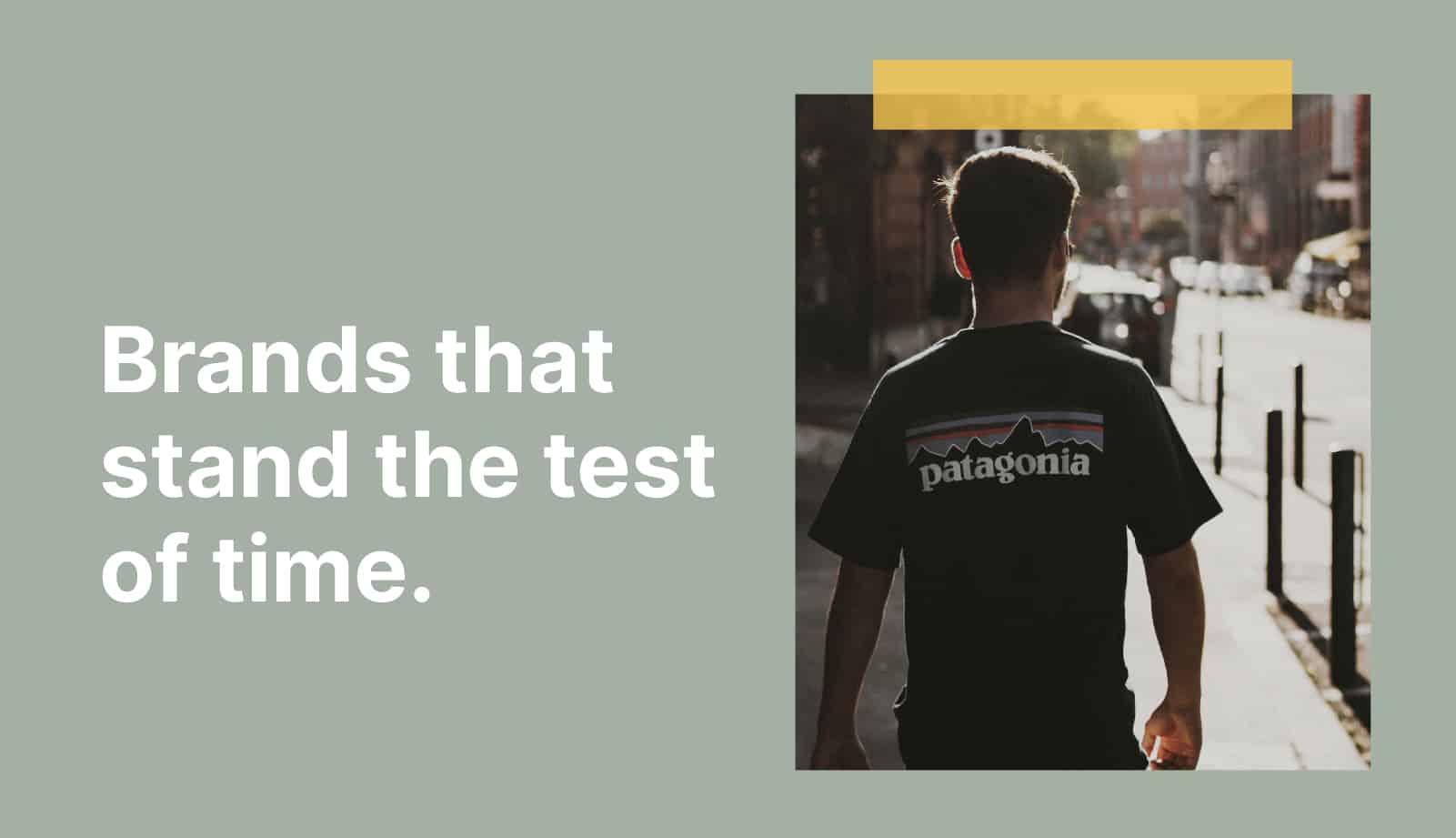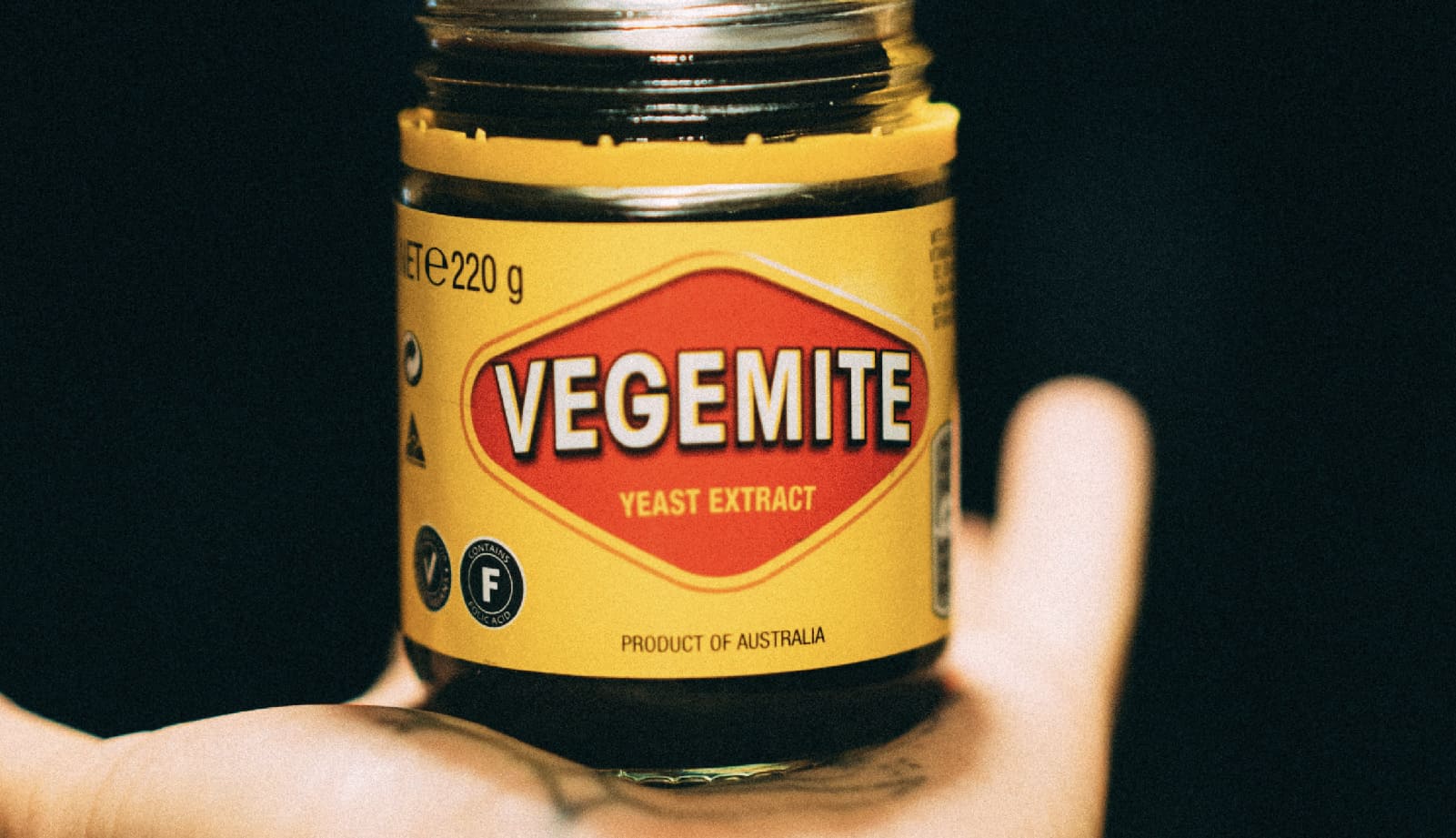
Brands that stand the test of time (and how they’ve done it)
Back when there were far fewer brands in the market, branding was a pretty straightforward practice. Find an opportunity in the market, stick a few key USP’s on your packaging and gain exposure through mass media.
However, things weren’t always going to remain this simple…
With the introduction of the World Wide Web, social media, and an influx of competitors seeking out a slice of the market pie, maintaining your brand’s status in the mind of consumers became a little more challenging. So, how did some brands go from strength to strength throughout the years?
To put it simply, they made a promise and stuck to it. Even before Marc Gobé released his breakthrough emotional branding concept 20 years ago, these brands were well ahead of the game, tugging on the heartstrings of their customers.
Let us elaborate.
C.C Filson (or just Filson these days)
Since 1897, Filson has remained competitive in the men’s apparel space. So, how did they gain their status, and how do they continue to compete after such a long time?
Firstly, the founder, C.C. Filson truly believed that his products were the most durable and reliable apparel for outdoorsmen.
He believed in them so much that he backed up his claim with a lifetime guarantee on all Filson products. Even to this day, the brand reassures its customers that if they purchase from Filson, they’ll always be clothed appropriately for the great outdoors.
Rather than pushing product benefits, Filson sells a ticket to the outdoors that lasts a lifetime.
At the time, Filson knew their customers’ needs better than the customers themselves. The company famously placed an ad in the local newspaper with an illustration of skeletons and frozen bobsleds at the bottom of a mountain pass. By them marched a group of men wearing parkas, with the simple slogan, ‘Victims of cheap outfitters’.
Back then, Filson’s customer base was largely gold miners heading north to try their luck at Klondike River; however, the same promise is still relevant to the outdoorsmen of today.
Filson has capitalised on its rich history and unwavering craftsmanship to continue selling a ticket to the outdoors for men all over the world.
Patagonia
Another brand that has stood the test of time is Patagonia.
Throughout its 48 years, Patagonia has stuck to its guns and never once swayed from its mission, ‘to be in business to save our home planet’.
One of the most powerful quotes we really admire was by founder Yvon Chouinard:
“You can’t reverse into a mission and values through marketing. The organisations that are struggling with this are probably the ones that are thinking about marketing first. The role of marketing is to authentically elevate that mission and purpose and engage people in it, but the purpose needs to be the business.”
Focusing on remaining brand-led and forging its own path based on the brand’s purpose rather than responding to the demands of its consumers has granted Patagonia’s long-standing success.
The brand never wanted to be in business to mass-produce clothing that would impact the environment and has demonstrated that promise in some pretty expressive ways.
Patagonia turned Black Friday on its head with its ‘Don’t Buy This Jacket’ campaign.
If you managed to miss the ad featured in The New York Times, Patagonia straight up called out consumerism.
The company got major attention for trying to achieve the complete opposite of every other Black Friday campaign that year. Patagonia restated its purpose and in doing so, solidified itself as a brand doing good for the rest of the world.
Patagonia has never faulted in its mission to work for environmental change. Though there have been calls for the company to become publicly listed, Patagonia has responded with a hard ‘No’ in a bid to avoid ‘selling out’ to people who don’t share their values.
Patagonia’s authentic purpose has been the powerhouse behind its success, never failing to impress its passionate followers.
We love your work, Patagonia!

Vegemite
If you grew up without Vegemite in your cupboard, we’re sorry to say, but you’re well and truly in the minority. Since its inception in 1923, Vegemite has secured itself as the spread for Australians and has dominated the condiment market ever since.
So, how did Vegemite, a rather simple product made from leftover brewers’ yeast extract, and founded by an American, make it as one of the most well-known brands in Australia to this day?
Well, they positioned themselves that way.
However, it wasn’t all smooth sailing for Vegemite. The brand had to overcome numerous setbacks before finding its feet.
In the lead up to the brand’s success, Vegemite faced some harsh backlash for failing to take down the market leader at the time, Marmite. However, Vegemite stayed true to itself and believed in its superior product to remain undiscouraged by its numerous failed branding attempts.
Vegemite took a step back to reevaluate its purpose.
Rather than selling a relatively healthy product packed with vitamins or putting up a petty fight with the current market leader, Vegemite was now in the business of fuelling the Australian spirit.
Eventually, after increasing the brand’s exposure through various competitions, and official endorsement by the British Medical Association, Vegemite became a staple in the ration packs for Australian soldiers during World War 2, reinventing itself as a patriotic symbol of Australia.
“Vegemite: Keeping fighting men fighting fit”
Since then, they’ve cast their entire focus on serving Australian soldiers, fathers, wives and children.
Cue the famous jingle, ‘happy little vegemite’.
The jingle won our hearts, and even today remains the secondary anthem of our nation, simplifying the choice of spreads for generations of Aussie families.
Nowadays, Vegemite is not only our nation’s spread of choice but a mark of pride and ownership as an Australian.

So, what do these brands have in common?
They each have a concrete purpose that drives every business and brand decision.
To create a strong brand that stands the test of time, you need to first determine why you’re in business. Establishing your ‘why’ helps you to define a clear and compelling promise. This is the most fundamental step in establishing a strong brand.
From here is where the magic happens.
